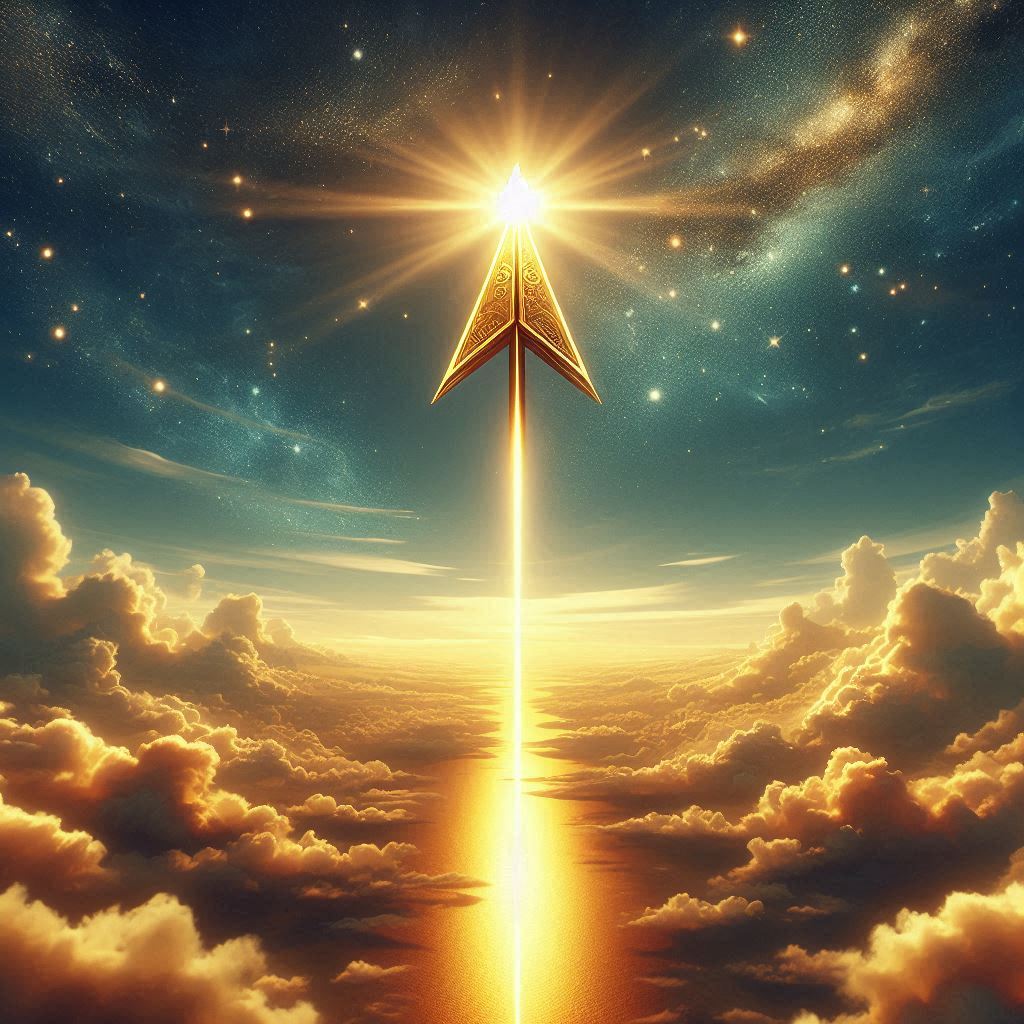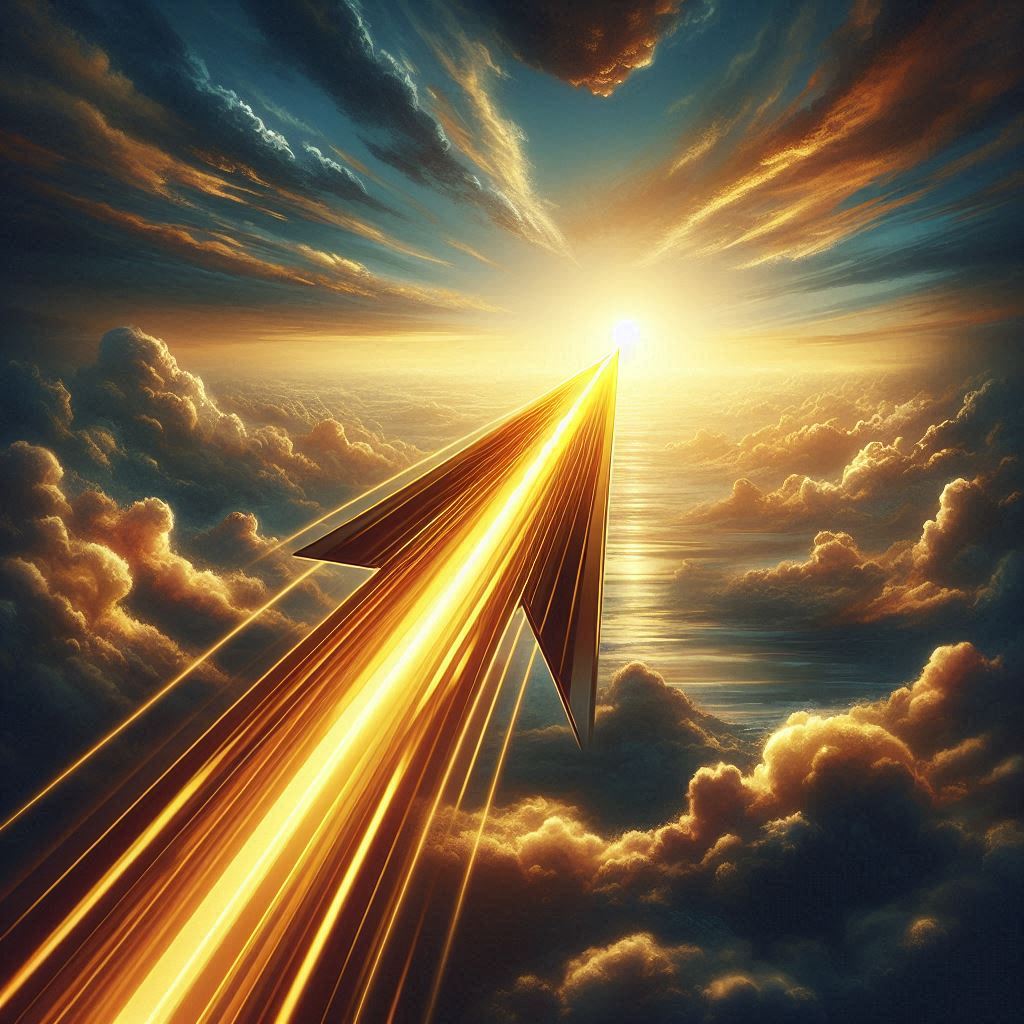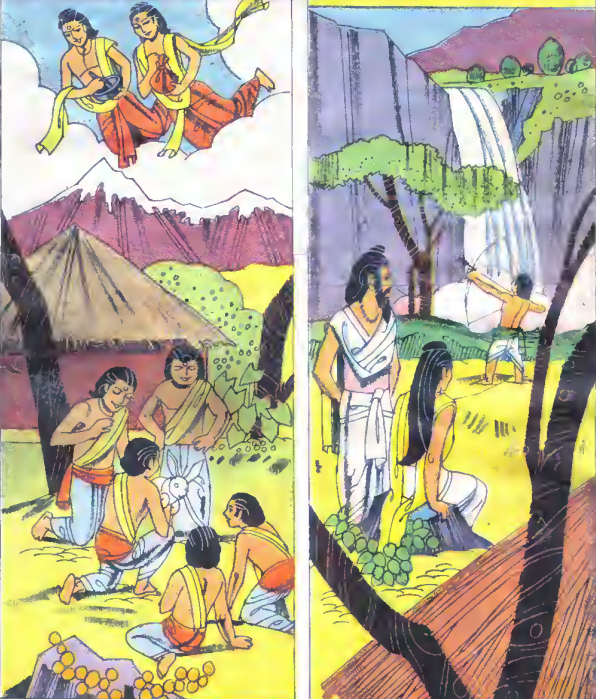The Pandavas and Kauravas set up camps on either side of the extensive Kurukshetra battlefield. On the night before the start of the war, Duryodhana asked Bhishma to rank the warriors on both sides. Bhishma did so and explained that he would not raise his weapons against Shikandin, Draupada’s eldest child.
Bhishma revealed that Shikandin was born a woman and became a man. She was Amba, a princess of Kashi in her previous birth. Since her life was destroyed by the actions/ decisions of men around him, especially Bhishma, she vowed to take revenge by killing him. The grandsire shared the details of the kidnapping of the three princesses of Kashi, the dilemma of Amba’s situation, and his battle with his guru, Parasurama.
The battle between Bhishma and Parasurama took place in the same Kurukshetra field and lasted longer than the war between the Pandavas and the Kauravas.

When Amba shared her plight with Parasurama, he promised to either convince Bhishma to do the right thing and marry her or fight him in a duel. Since Bhishma had made a vow not to marry and stay celibate, Parasurama had to challenge him to a fight. Bhishma accepted it, though he would be facing his guru on the other side. His vow meant the most to him.
A day had been decided for their battle. Bhishma was ready in his armour and chariot filled with weapons. Bhishma’s armour, bow, and umbrella on the chariot were white. His charioteer was his friend and an expert in handling the horses during battles. He blew his conch to indicate he was ready. The ascetics living in the forests, the rishis in heaven, and many others also arrived at the battlefield to witness the event. Divine musical instruments sounded from heaven.
River Ganga also manifested at the site in her physical form. She didn’t want her son, Bhishma, to fight his guru. Parasurama was a powerful warrior after all! Bhishma said he had no choice since he wasn’t going to break his vow. Then Ganga tried to convince Parasurama not to fight. He told her that the decision lay in Bhishma’s hands. Knowing the battle was inevitable, she blessed her son and left.
Parasurama stood on the ground on the other side. When Bhishma said he couldn’t fight someone standing on the ground, a celestial chariot appeared for Parasurama. The rishi said that the earth was his chariot and the Vedas his horses. As he spoke, the celestial chariot formed around him. Akritavrana, Parasurama’s favorite disciple, was his charioteer. He yelled ‘attack’ and charged at Bhishma.
Bhishma too raced ahead but stopped his chariot a few feet away. He got down and went to his guru. As was the tradition, Bhishma took the blessings of his guru before the war and asked Parasurama to bless him to be victorious. This pleased the rishi. He said that Bhishma followed his dharma correctly. The rishi admitted he would have cursed the grandsire if he hadn’t sought blessings from his guru. However, since they were fighting each other, he couldn’t wish Bhishma to be victorious and told him to fight the battle with dharma.
Bhishma went back to his chariot and blew his conch once again. Parasurama was the first to strike Bhishma. He released nine hundred and sixty-nine arrows. The battle became intense very quickly as both were highly skilled warriors. However, before firing his first arrow, Bhishma announced that he wasn’t aiming or striking the teacher/ Brahmin in Parasurama but was fighting with the Kshatriya in him. He then shot nine hundred arrows at the rishi. They fought until sunset and retreated to camp on the side for the night.
Bhishma and Parasurama repeated the same for many days. They would spend the night healing the injuries and resting. In the early morning, they would finish the ablutions and bathing, say the prayers, don the armour, and face each other again. Neither was willing to give up, so they had no choice but to keep fighting. Of course, Bhishma would often go through bouts of self-hate for fighting his guru, but he had to follow his Kshatriya dharma. His charioteer took care of the horses and his wounds when they stopped the battle at night.
They used many celestial weapons like vayavya, guhyaka, varuna, agneya, etc., on each other. If one of them released a divine astra, the other would destroy it with another powerful weapon. At one point, Prasurama’s arrow pierced Bhishma in the chest by tearing through his armour. He fell faint for a few seconds, and his charioteer rode him to safety. Bhishma heard the cheers from Parasurama’s supporters, including Amba, who was right on the battlefield, witnessing it.
In a bit, Bhishma went back to face his opponent and resumed the fight. He fought with renewed energy and managed to injure Parasurama. It was the rishi’s turn to fall unconscious. His charioteer and Amba took care of the rishi by sprinkling water on him and applying salve to the injury. Parasurama, too, got up quickly and resumed the fight. He killed Bhishma’s horses, and the grandsire retaliated. Their arrows were so swift and powerful that they filled the sky and blocked the sunlight.
As the battle extended, Parasurama’s determination grew. He was intent on humbling Bhishma. When Bhishma successfully sliced three arrows of the rishi, Parasurama was angry. He created an arrow net to trap Bhishma. In turn, the Kuru warrior shot twelve arrows to tear down the net. Parasurama shot a divine arrow that multiplied and completely covered Bhishma, his charioteer, his horses, and his chariot. He countered it as much as he could. By the end of that day, both men were severely injured and bleeding.

The next morning, they resumed the battle. However, quite soon, Parasurama’s arrows killed Bhishma’s charioteer. This made Bhishma sad. He even experienced fear for a brief moment. Just then, an arrow hit him. Bhishma toppled down, and Parasurama thought he was dead. His followers rejoiced while Bhishma’s side was distressed.
As Bhishma lay on the ground, trying to get his bearings, he saw eight Brahmins approach him. They were as radiant as the sun and surrounded him from all directions. In fact, they supported Bhishma’s body so that it wouldn’t touch the ground and hover a few inches above. They assured Bhishma that everything would be fine. Just then, his mother arrived and protected his horses, chariot, and weapons.
Once Bhishma recovered, they vanished. He resumed his fight and countered Parasurama until the day’s end. He managed to gravely injure the rishi, who fell unconscious. This shook the earth. Meteors fell from the sky. Strong winds blew. Vultures, crows, jackals, etc., cried loudly. Since this happened before dusk, they stopped the battle for the day and rested through the night.
Unlike the previous nights, Bhishma couldn’t sleep. He thought about the battle with Parasurama and how it seemed to be continuing for days. He prayed for help before drifting to sleep. He admitted that he wouldn’t be able to vanquish Parasurama and requested the gods to be favorable to him and show him a way.
That night, Bhishma had a vivid dream. The same Brahmins who surrounded him earlier in the day appeared again. They assured Bhishma not to lose hope and said Parasurama wouldn’t be able to defeat him either. They gifted him a weapon that previously belonged to him (in his true form as a Vasu). The weapon, named Prasvapan, was crafted by Vishwakarma. No one knew about the astra, not even Parasurama. They also ensured Bhishma that the rishi wouldn’t be killed by it and would be put into a deep sleep. Once Bhiahma defeated Parasurama, he could revive the rishi using the Sambodhana astra. They said Parasurama was not a mortal and couldn’t be killed, so it wouldn’t be a sin to use the weapon on him. The Brahmins disappeared and left Bhishma to sleep.
The next morning, Bhishma woke up and remembered the dream. Encouraged by their support, he fought the battle with great energy. Parasurama hurled a spear at Bhishma, which struck his shoulder and wounded him. Blood flowed from the injury. Bhishma shot back an arrow that struck Parasurama on the forehead. This angered him so much that he swiftly shot an arrow at Bhishma’s chest. Bhishma fainted at its impact. Regaining his senses, he hurled a spear at the rishi. This time, Parasurama lost his senses.
Then, both of them used the Brahmastra on each other. The collision shook the earth and sky. Bhishma decided it was time to use his new weapon, the Prasvapan. The moment he invoked it, the astra appeared in front of his eyes. However, a voice from heaven warned Bhishma not to release the weapon. The grandsire didn’t heed the message and aimed his bow at Parasurama. So, Narada appeared between him and Parasurama. He told Bhishma that he shouldn’t disrespect his guru by using such a weapon on him. The gods were also at the scene and ready to restrain Bhishma if he went ahead with it.
The eight Brahmins who gifted the astra to Bhishma also appeared and said he should listen to Narada. Heeding their words, Bhishma withdrew the Prasvapan astra and chose to use the Brahmastra.
Parasurama saw this and said that he was defeated by Bhishma. He was angry (since no Kshatriya could defeat him). Jamadagni, Parasurama’s father, was among the audience. He soothed his son and told him to withdraw from battle as it was the right thing to do.
Since both of them were told to stop the battle, they gave up the fight. While Bhishma felt it was a stalemate, Parasurama declared Bhishma the winner of the battle. The rishi then apologized to Amba for not being able to help her. A furious Amba decided she would get her revenge no matter what it took and left the place.






